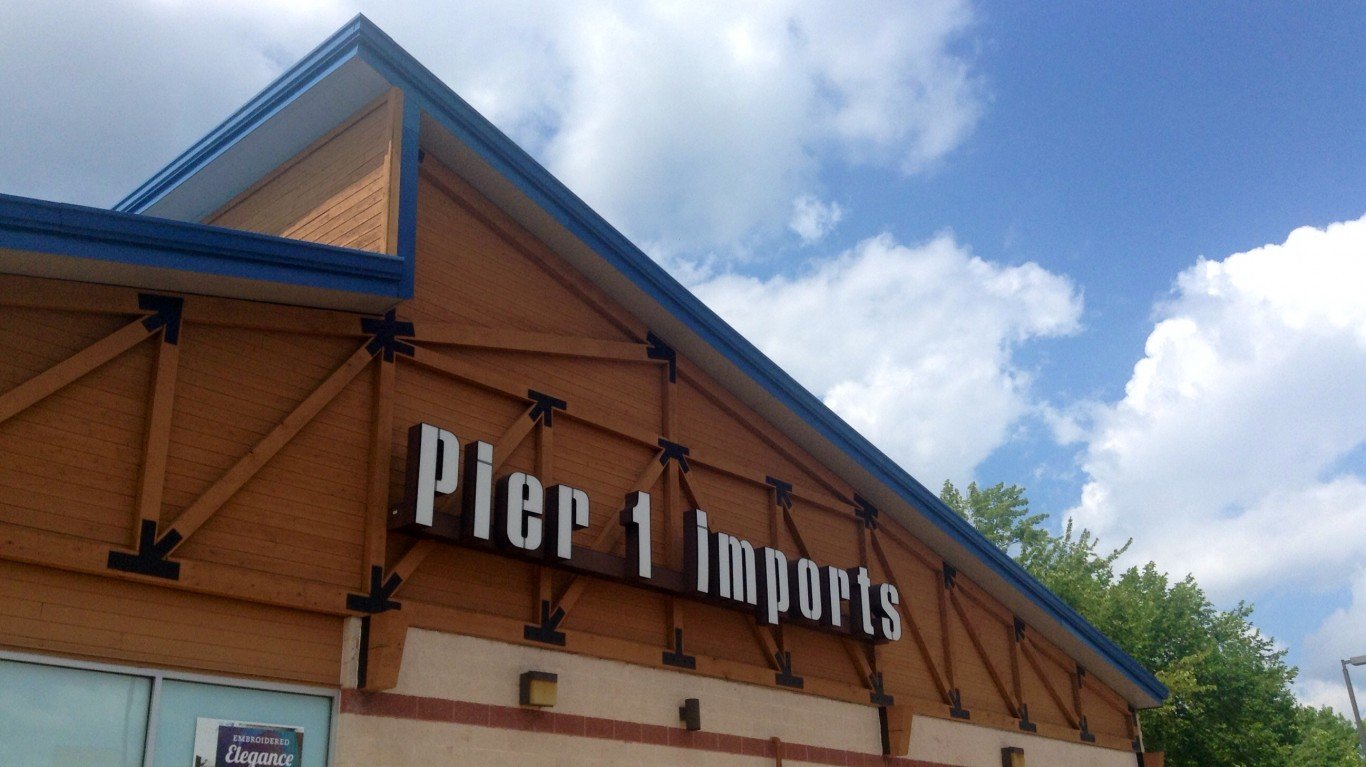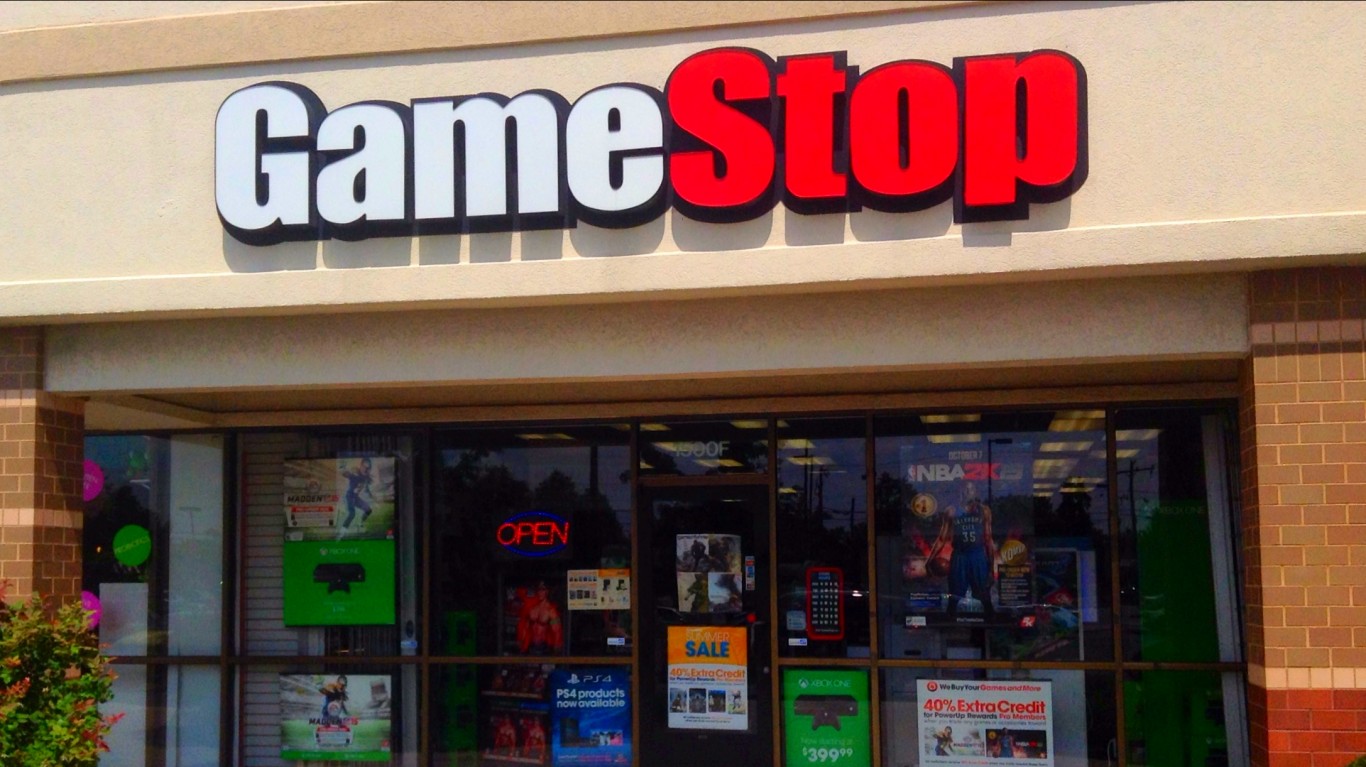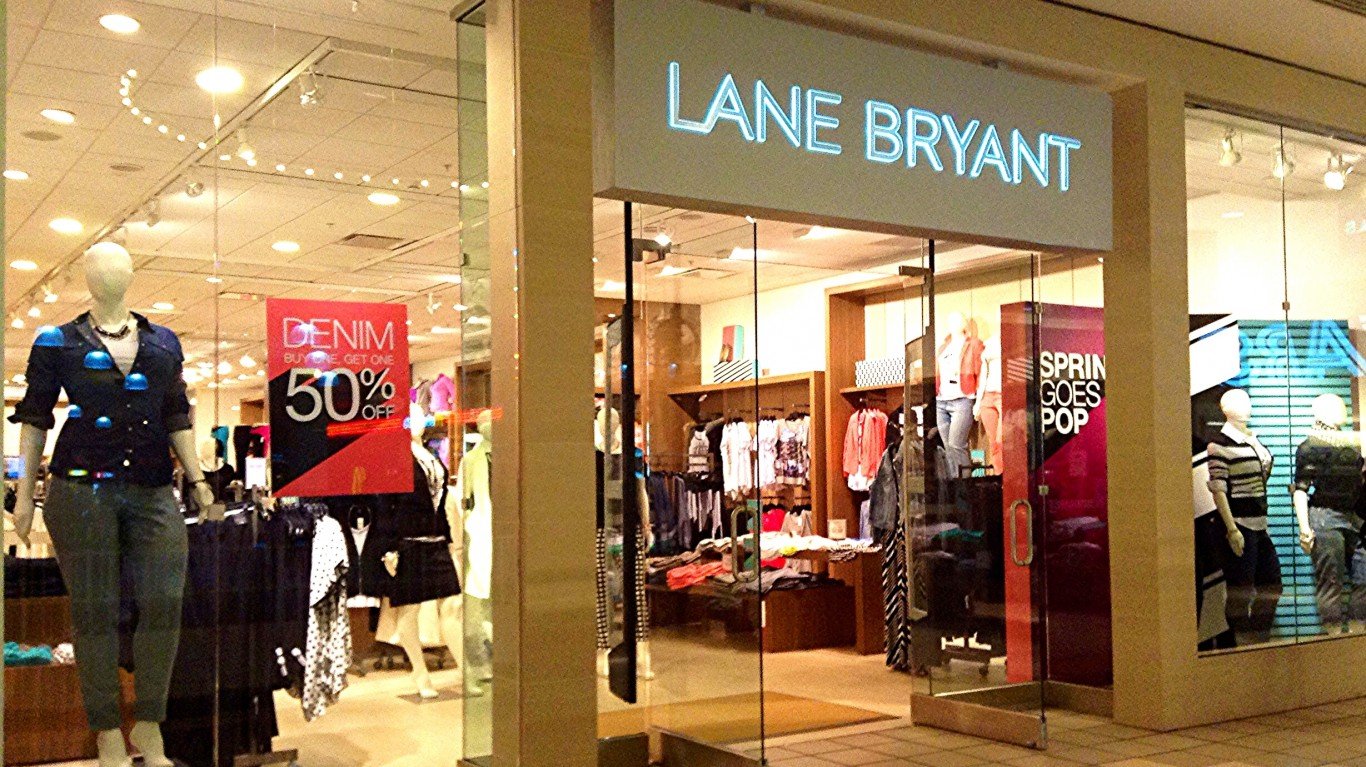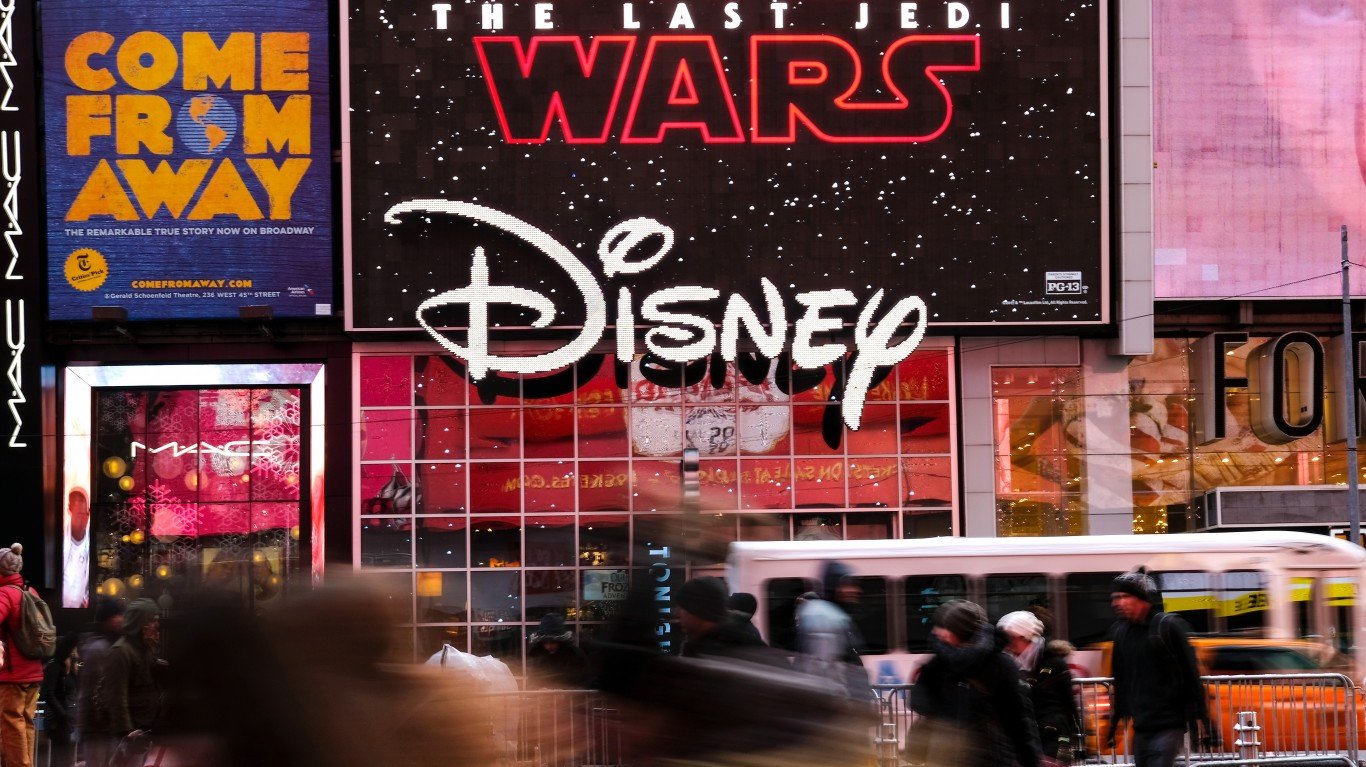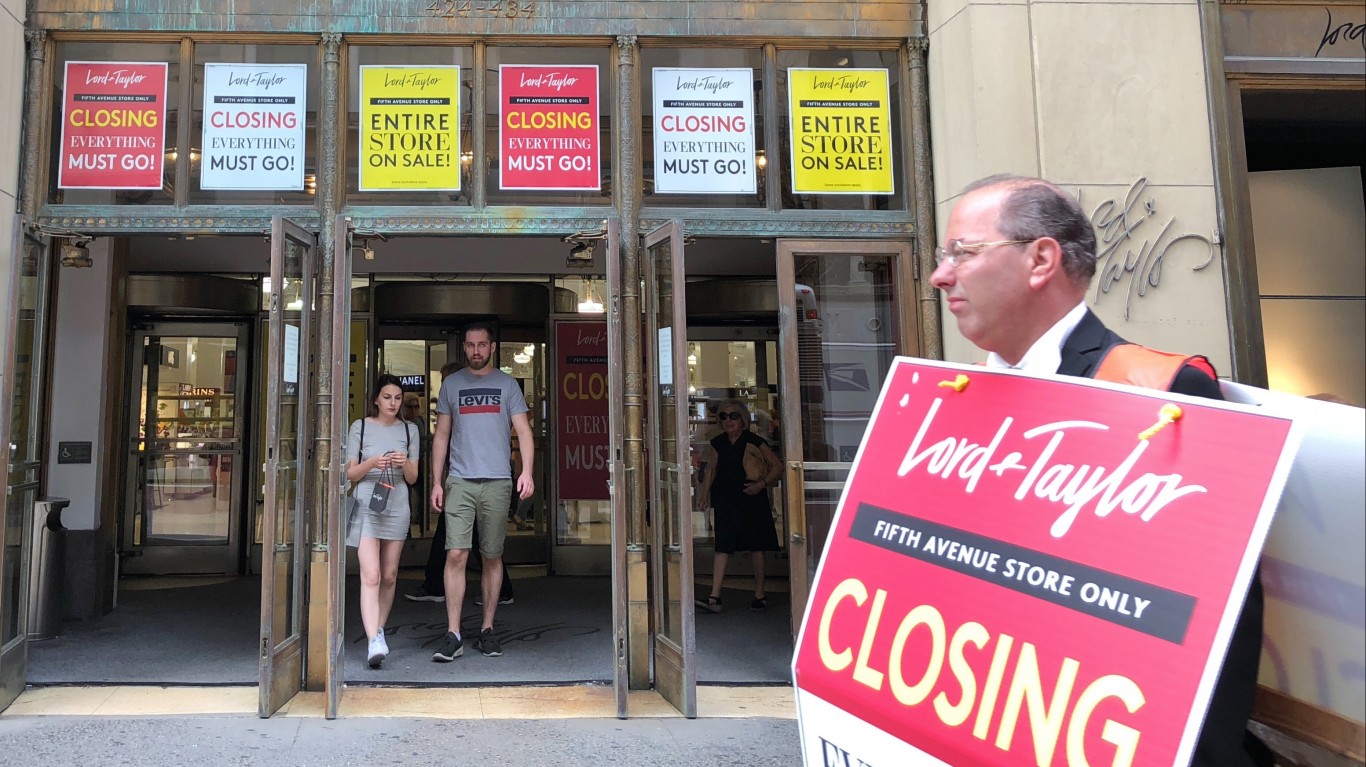

With the rise of e-commerce, traditional brick-and-mortar retailers in the United States have been struggling for years. Online shopping accounted for just 4.2% of all retail in the U.S. in 2010, but for over 16% by 2020. By some estimates, one in every four U.S. malls will close by 2025 and half of all department stores within malls could shutter by the end of this year.
While these trends predate the coronavirus pandemic, lockdown measures imposed in much of the country over the past year have intensified them, further exacerbating the struggles of many retailers. According to a report compiled by Coresight Research, a retail advisory firm, over 8,000 brick-and-mortar stores in the United States closed permanently in 2020, and another 10,000 are expected to shut down in 2021. Here is a look at the brands that have disappeared in the last decade.
Using corporate press releases of the 100 largest retailers operating in the U.S by total revenue, as well as media reports on high profile bankruptcy filings and mass closures, 24/7 Wall St. identified the retailers closing the most stores. Closure counts are only for U.S. locations, unless otherwise noted, and include both 2020 and 2021 closures as well as planned future closures. It is important to note that this list is representative of trends in retail as highlighted by major brands and is not exhaustive.
For many companies on this list, store closures are part of a strategic restructuring plan — closing underperforming stores, reducing costs, and focusing on growth areas, like e-commerce.
In some other cases, the companies that appear on this list are either liquidating all of their assets and going out of business — or likely soon will. Here is a look at the American businesses that might not survive coronavirus.
Click here to see retailers closing the most stores.
To identify the retailers closing the most stores, 24/7 Wall St. reviewed press releases and media coverage of the 100 largest retailers by global sales revenue. We also included some high profile retailers that are not among the 100 largest, but that have recently made news for bankruptcy declarations or mass store closures. We included closures that have taken place in the past year and those that are planned for the coming year.
Retail locations that have been sold to a competing company for rebranding were not included. Companies where the number of closures were largely offset by the opening of new locations were also excluded. This list is representative of trends in retail as highlighted by major brands and is not exhaustive.
20. Transformco
> Closures: 26+
> Brand(s) affected: Sears, Kmart
Over the last decade and a half, over 3,500 Sears and Kmart locations have permanently closed. It has been about two years since Transformco acquired the brands from Sears Holdings, the former parent company when the holding company declared bankruptcy.
SB360 Capital Partners, which manages the store closing sales, announced the closure of at least 18 Sears locations and another eight Kmart stores by mid-April 2021.
[in-text-ad]

19. Lord & Taylor
> Closures: 38
> Brand affected: Lord & Taylor
Troubled department store chain Lord & Taylor declared bankruptcy in August 2020 and announced the imminent closure of its 38 brick-and-mortar stores. The Saadia Group bought the brand from its parent company Le Tote in October 2020 for $12 million by and will relaunch it as an online only store under the name America’s Collective Store
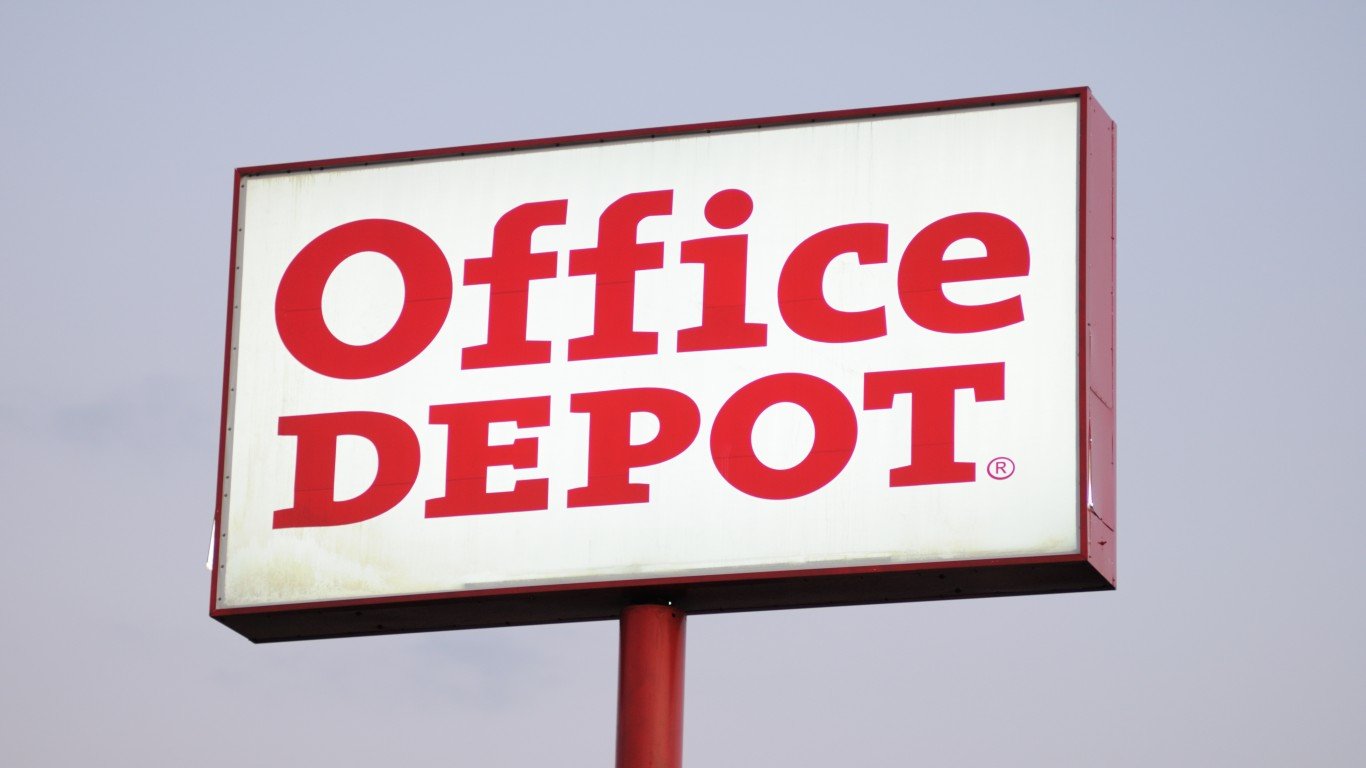
18. Office Depot
> Closures: 90
> Brands affected: Office Depot, Office Max
Office Depot has announced plans to shutter 90 locations over the course of 2020 and 2021. The company, which also owns the office supply brand Office Max, is reducing its brick-and-mortar footprint as it puts increased resources into its IT and business services.
The move is expected to result in 13,100 lost jobs and $860 million in net savings.
17. Modell’s
> Closures: 100+
> Brand affected: Modell’s
Modell’s, a sporting goods store that has been family owned and operated for over a century, filed for Chapter 11 bankruptcy in March 2020. In the face of growing competition, sales at the New York-based company had slumped, prompting the liquidation of its over 100 remaining locations in the Northeast. At its height, Modell’s had over 150 locations.
[in-text-ad-2]
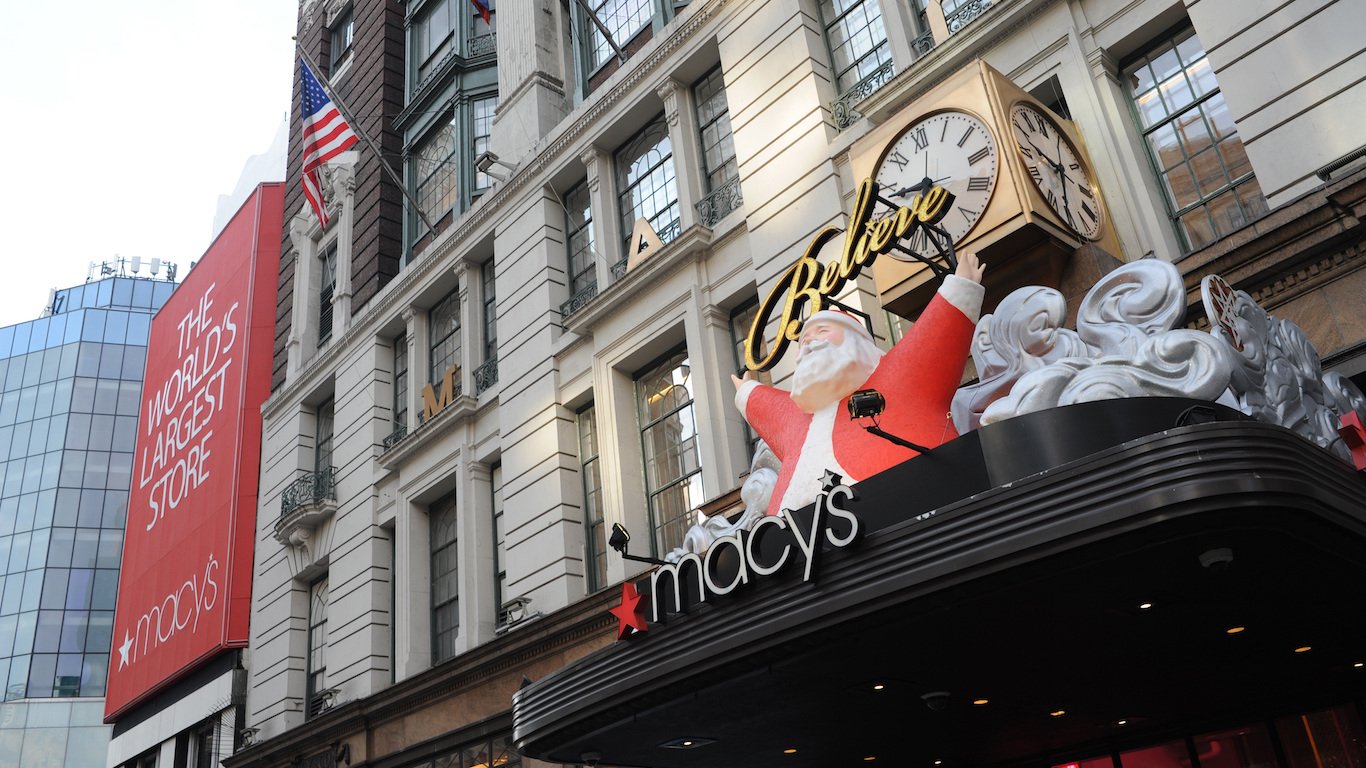
16. Macy’s Inc.
> Closures: 125
> Brands affected: Macy’s, Bloomingdale’s
Macy’s, which operates department store chains Macy’s, Bloomingdale’s, and Bluemercury, is one of several retailers on this list suffering from the decline of the American mall. The company has reported declining revenue in each of the last two fiscal years.
Falling sales led to the plan, announced in February 2020, to shutter 125 stores over a three-year period. About 30 locations closed in 2020 and another 36 Macy’s locations, as well as one Bloomingdale’s location, are scheduled to permanently close by mid-2021.
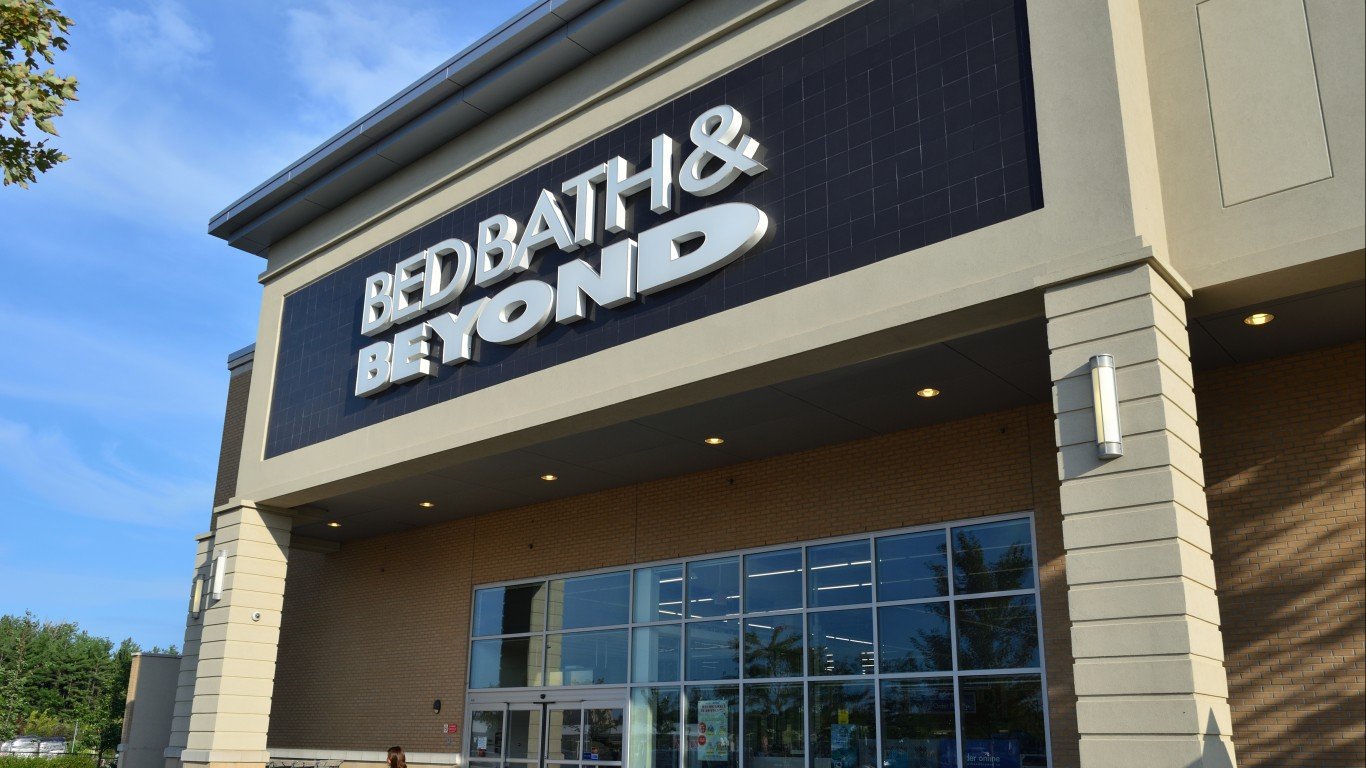
15. Bed Bath & Beyond
> Closures: 200
> Brand affected: Bed Bath & Beyond
Home goods retailer Bed Bath & Beyond announced plans to shutter 200 locations — over one-fifth of its brick-and-mortar footprint — over a two-year period beginning in July 2020. The first 63 closures were completed in 2020, and about another 60 were shut down in the first two months of 2021.
As is the case with many retailers on this list, Bed Bath & Beyond was struggling before the pandemic hit, and location closures were already in the works.
[in-text-ad]
14. Dine Brands Global
> Closures: 202
> Brands affected: Applebee’s, IHOP
Dine Brands Global is the parent company of the IHOP and Applebee’s restaurant chains — both of which have reported significant revenue declines during the COVID-19 pandemic. As a result, the company shuttered 52 underperforming Applebee’s locations and 35 IHOP locations in the first three quarters of 2020. Over the fourth quarter of 2020, Dine Brands closed another 15 Applebees and closed another 100 IHOPS through the first quarter of 2021.
A company spokesperson stated an expectation that these underperforming locations will eventually be replaced by stronger performing restaurants, though the company’s most recent earnings report — fourth quarter of 2020 — fell short of expectations.

13. J.C. Penney Company
> Closures: 242
> Brand affected: J.C. Penney
Two months into the COVID-19 pandemic, in May 2020, department store J.C. Penney filed for Chapter 11 bankruptcy. As part of a restructuring agreement, the company announced the imminent closure of 242 brick-and-mortar stores. By December 2020, the company had already closed 150 locations, and another 15 were closed in early 2021.
Like many troubled retailers reducing their store count, J.C. Penney has long been a staple in American shopping malls, which, even before the pandemic, were suffering from reduced foot traffic.
12. The Children’s Place
> Closures: 300
> Brand affected: The Children’s Place
Child clothing retailer The Children’s Place closed 178 locations in 2020 and plans to shutter another 122 in 2021. Closures were due in large part to sales declines during the COVID-19 pandemic. But, like many other stores that are commonly found in shopping malls, The Children’s Place struggles began long before the pandemic. The company’s profits have fallen in each of the last two fiscal years.
[in-text-ad-2]
11. Signet Jewelry
> Closures: 300
> Brands affected: Kay Jewelers, Zales, Jared The Galleria Of Jewelry, and Piercing Pagoda
Signet Jewelry, the world’s largest diamond jewelry retailer and parent company of brands that are staples in American malls such as Kay Jewelers, Zales, and Piercing Pagoda, temporarily shuttered locations across North America at the outset of the COVID-19 pandemic. In June 2020, the company announced 150 of those locations would not reopen. The company announced plans to shutter an additional 150 stores by February 2021.
Even before the pandemic, the company had reduced its footprint by 13% in declining malls. The latest closures represent 20% of the company’s North American locations.
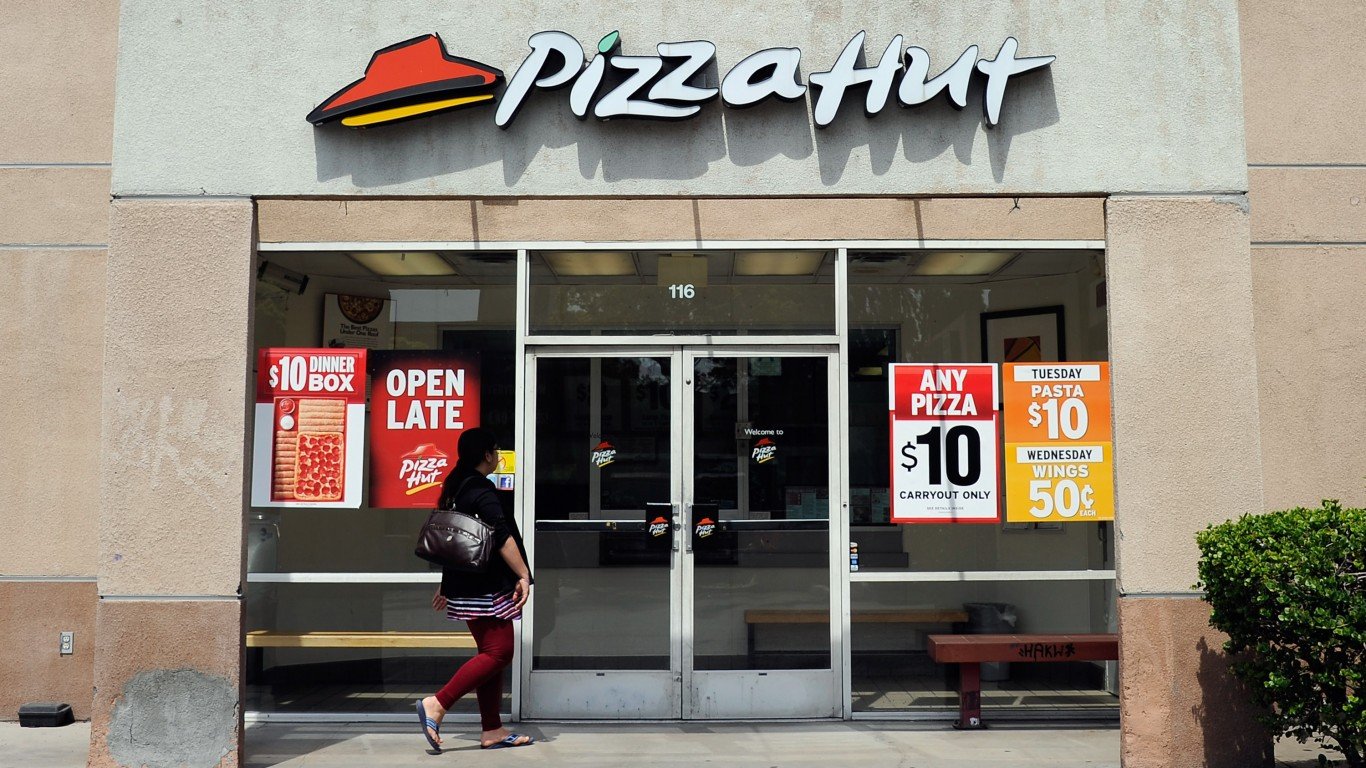
10. Yum! Brands
> Closures: 300
> Brand affected: Pizza Hut
Yum! Brands, the parent company of fast food chains Taco Bell, KFC, and Pizza Hut, reached a deal in August 2020 to close up to 300 underperforming Pizza Hut locations. The announcement came after NPC International, the largest Pizza Hut franchisee, declared Chapter 11 bankruptcy as it was saddled with a $1 billion debt burden. In addition to the closures, NPC will sell its remaining 927 Pizza Hut restaurants.
Most of the closures will likely affect dine-in locations, a market the company had been moving away from even before the pandemic accelerated demand for delivery and takeout services.
[in-text-ad]
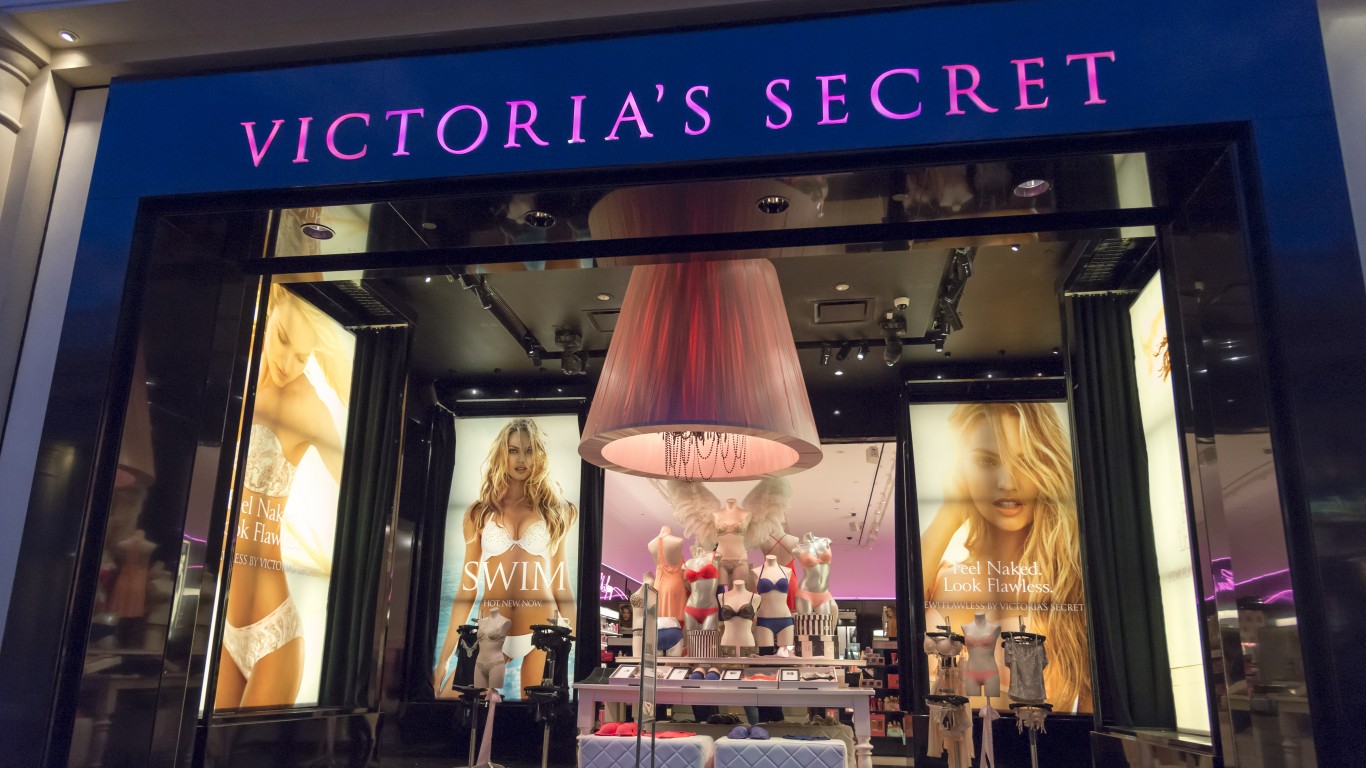
9. L Brands
> Closures: 338
> Brands affected: Victoria’s Secret, Bath & Body Works, Pink
Columbus, Ohio-based fashion retailer L Brands shuttered 235 Victoria’s Secret locations in the United States in 2020, as well as 50 Bath & Body Works locations and three Pink stores. The announcement of the closures came after year-over-year quarterly sales at the company declined by 37% in the early months of the pandemic.
The damage did not stop there. In late February 2021, the company announced the forthcoming closures of an additional 30 to 50 Victoria’s Secret locations. L Brands is moving forward with plans to spin off the struggling brand into its own company within the next six months.
8. Gap Inc.
> Closures: 350
> Brands affected: Gap and Banana Republic
Gap Inc., the parent company of clothing brands Old Navy, Banana Republic, and Gap, is one of many fashion retailers reducing its brick-and-mortar footprint to adapt to changing market conditions. In October 2020, the company announced plans to shutter 350 of its stores across North America by the end of fiscal 2023. Over 200 U.S. locations have already been closed. Company sales have been negatively impacted by declining mall foot traffic and the COVID-19 pandemic.
Meanwhile, the Old Navy and Athleta brands have been a bright spot. These brands have consistently reported higher profit margins, and as Gap and Banana Republic locations close, the company plans continued expansion of Old Navy’s brick-and-mortar footprint.
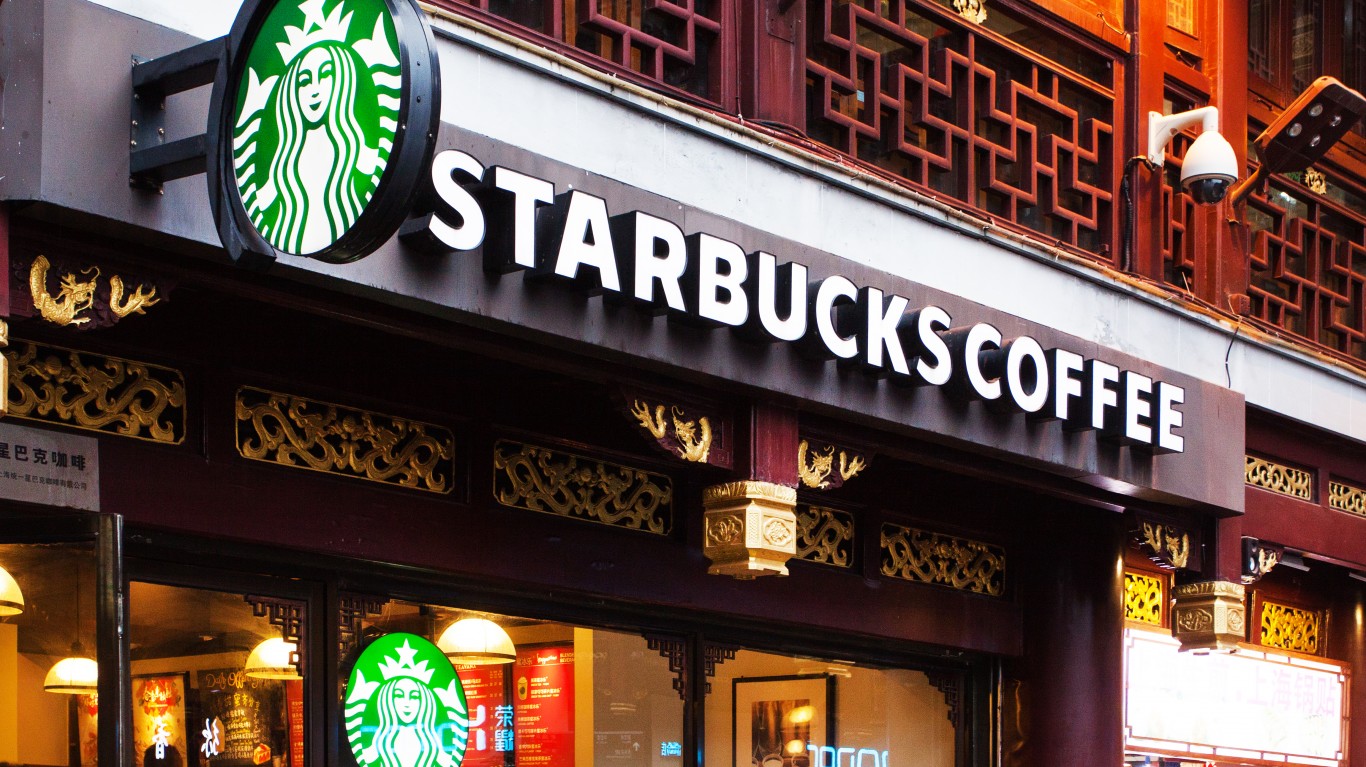
7. Starbucks
> Closures: 400
> Brand affected: Starbucks
Coffee retailer Starbucks is in the process of closing 400 U.S. locations by the end of its 2021 fiscal year. The announcement was initially made in June 2020, and additional closures were announced in a November 2020 earnings call.
The reduced footprint will be most pronounced in urban areas, where the COVID-19 pandemic has found many former commuters working from home and no longer stopping for a coffee on their way to the office.
[in-text-ad-2]
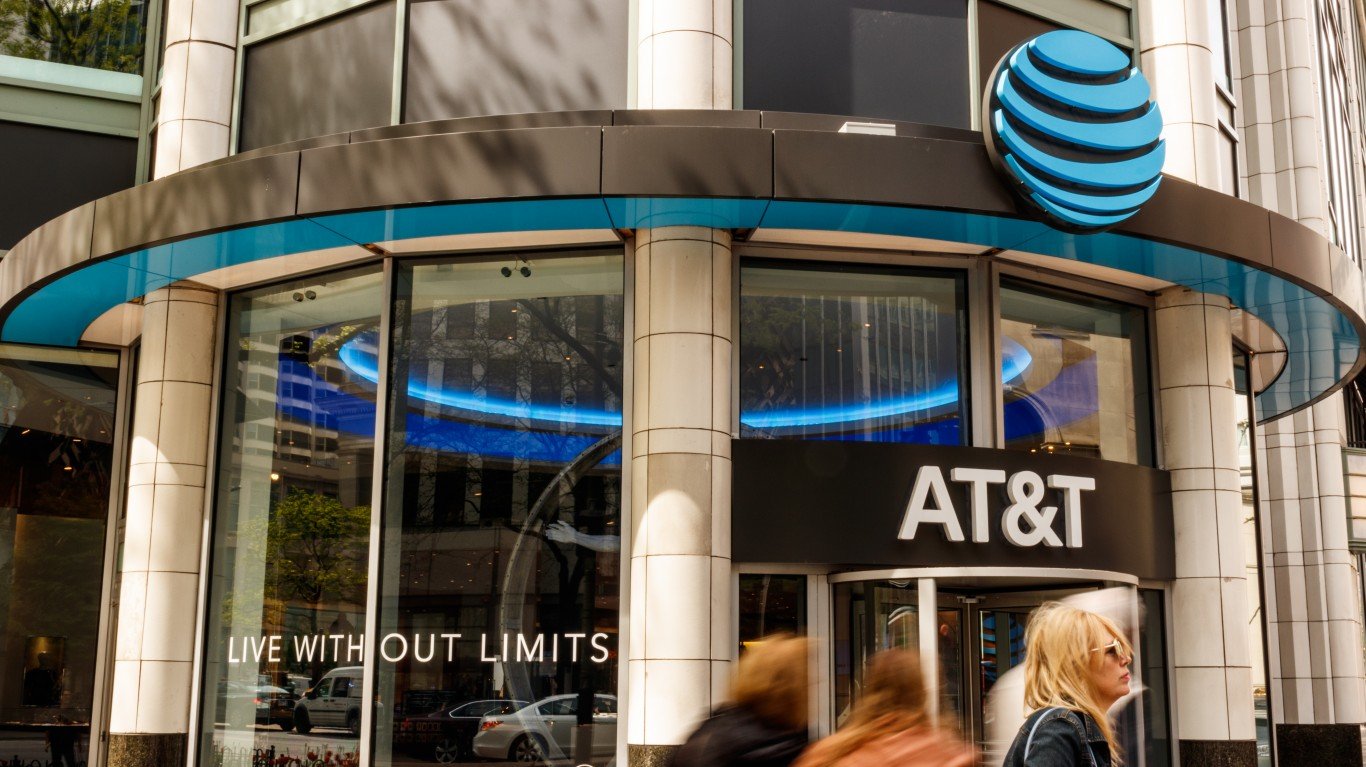
6. AT&T Wireless
> Closures: 570
> Brand affected: AT&T Mobility
AT&T shuttered 320 brick-and-mortar retail locations in the final two months of 2020. These closures were on top of another 250 permanent location closings the company carried out earlier in the year.
According to a company statement, the closures represent an adaptation to the growing trend of consumers making online purchases — a trend that although it predates the COVID-19 pandemic, it was no doubt accelerated by it.
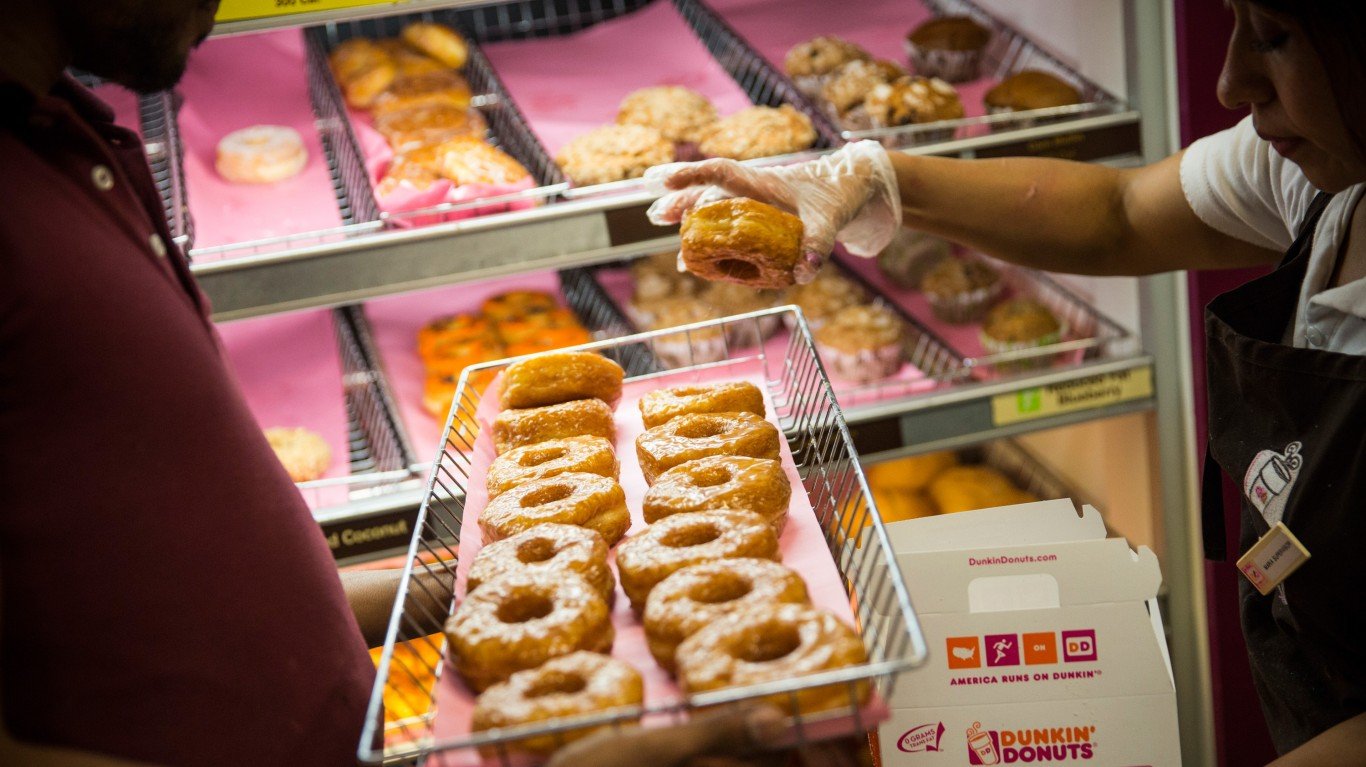
5. Dunkin’ Brands Group
> Closures: 800
> Brand affected: Dunkin’
Dunkin’ Brands Group, parent company of coffee and donut retailer Dunkin’, closed about 800 locations in 2020. Low-volume locations, as well as 450 locations in Speedway convenience stores, were the targets of the closures. The closures represent about 8% of the company’s footprint but only about 2% of its revenue. Urban Dunkin’ locations were hit especially hard by the pandemic as the shift to working from home has reduced demand for coffee or breakfast on-the-go from daily commuters.
[in-text-ad]
4. Pier 1 Imports
> Closures: 942
> Brand affected: Pier 1 Imports
In early 2020, Texas-based home goods retailer Pier 1 Imports filed for Chapter 11 bankruptcy protection. Before filing, the company announced plans to shutter 450 of its 942 stores. The closures included all of the company’s locations in Canada. The announcement was the continuation of a longer term trend. Less than one year earlier, in April 2019, Pier 1 reported the imminent closure of as many as 145 of its stores.
The company’s search for a buyer during the COVID-19 pandemic, however, proved futile, and in a May 2021 press release, the company announced the closure of all locations.
3. GameStop Corp.
> Closures: 1,462
> Brand affected: GameStop
GameStop, a troubled video game retailer, has made headlines in recent months due to its popularity among individual stock traders. The company’s share price has fluctuated from about $17 a share to over $480 since January 2021 as a result of a short squeeze. At the same time, the company has been restructuring, working to transform itself from a brick-and-mortar to an e-commerce retailer.
As a part of that effort, the company had closed 462 locations in 2020, as of mid-December, and announced plans to shutter another 1,000 locations by March 2021. These closures are on top of another 321 reported in 2019.
2. Ascena Retail Group
> Closures: 1,600
> Brands affected: Justice, Ann Taylor, LOFT, Lane Bryant, Lou & Grey, and Catherines
New Jersey-based Ascena Retail Group filed for Chapter 11 bankruptcy in late July 2020. The move came after the company had shuttered 600 locations of a clothing retailer Justice, which markets to pre-teen girls. Other company-owned brands that will be affected include Ann Taylor, LOFT, Lane Bryant, and Lou & Grey. The estimated total of 1,600 location closures include all Catherines locations, a plus-size women’s clothing store. The closures are part of a major corporate shift to online retail.
Like many other companies that have declared bankruptcy in the past year, or are downsizing their brick-and-mortar footprint, Ascena owned retailers operated largely out of shopping malls. Malls were already suffering from declining foot traffic even before the COVID-19 pandemic exacerbated the problem.
[in-text-ad-2]
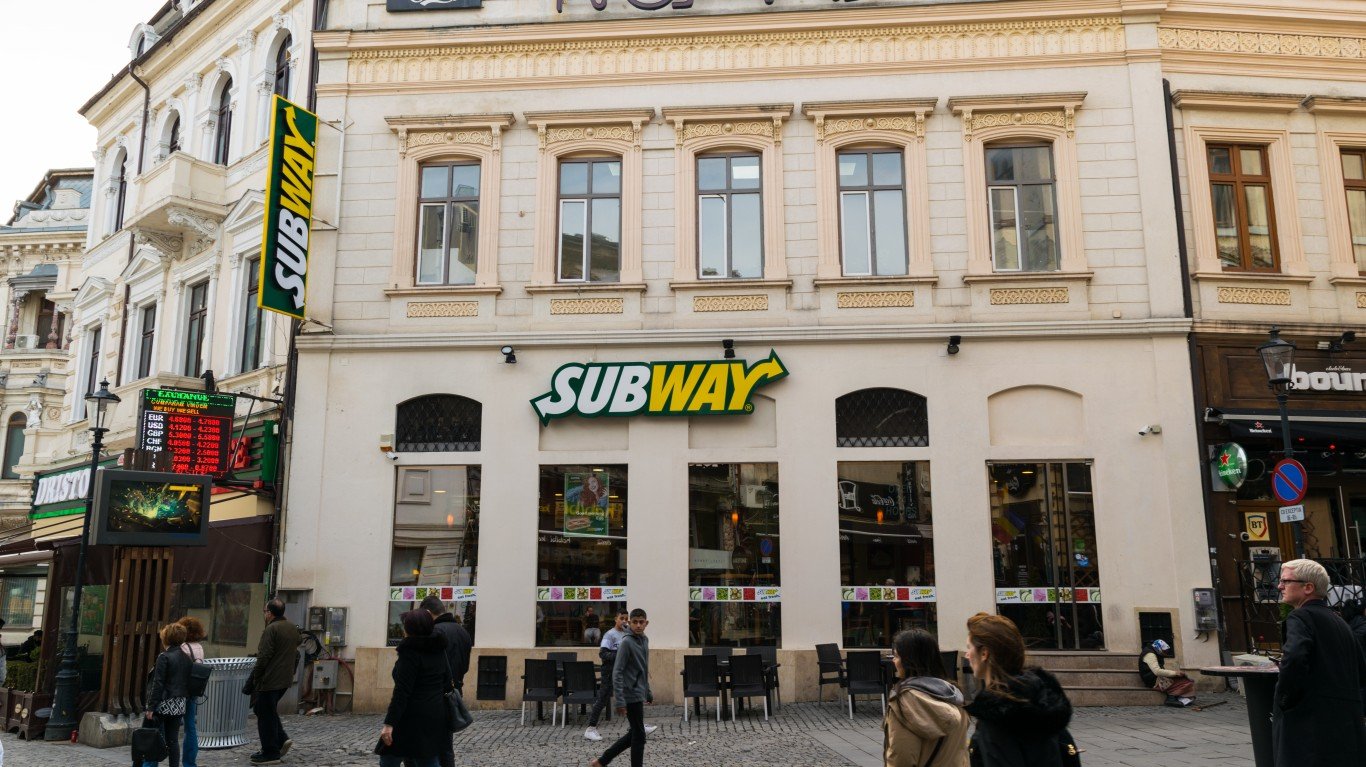
1. Subway
> Closures: 2,200 – 2,400
> Brand affected: Subway
For sandwich chain Subway, the pandemic worsened an already bad situation. Hundreds of locations have been shuttered annually in recent years in the face of growing competition and marketing difficulties. With COVID-19, Subway locations, which are often in malls and urban areas, reported steep sales declines. According to some estimates, between 2,200 and 2,400 Subway locations closed in 2020. It is important to note that while the company does not offer data on location closures, it maintains that these estimates are high.
Unlike other companies on this list, all Subway locations are franchised and none are operated by the parent company. Mass closures in the past year indicate steep losses for franchisees.
Take This Retirement Quiz To Get Matched With An Advisor Now (Sponsored)
Are you ready for retirement? Planning for retirement can be overwhelming, that’s why it could be a good idea to speak to a fiduciary financial advisor about your goals today.
Start by taking this retirement quiz right here from SmartAsset that will match you with up to 3 financial advisors that serve your area and beyond in 5 minutes. Smart Asset is now matching over 50,000 people a month.
Click here now to get started.
Thank you for reading! Have some feedback for us?
Contact the 24/7 Wall St. editorial team.
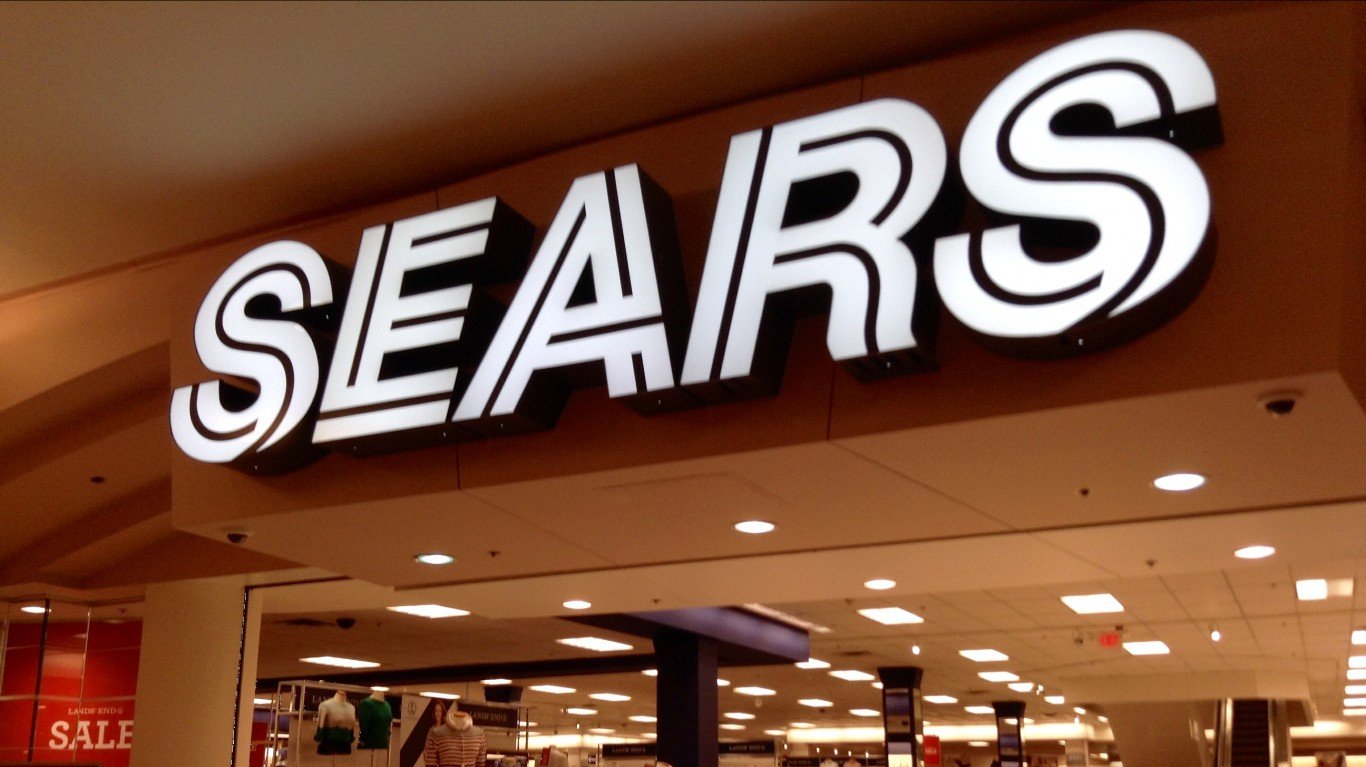
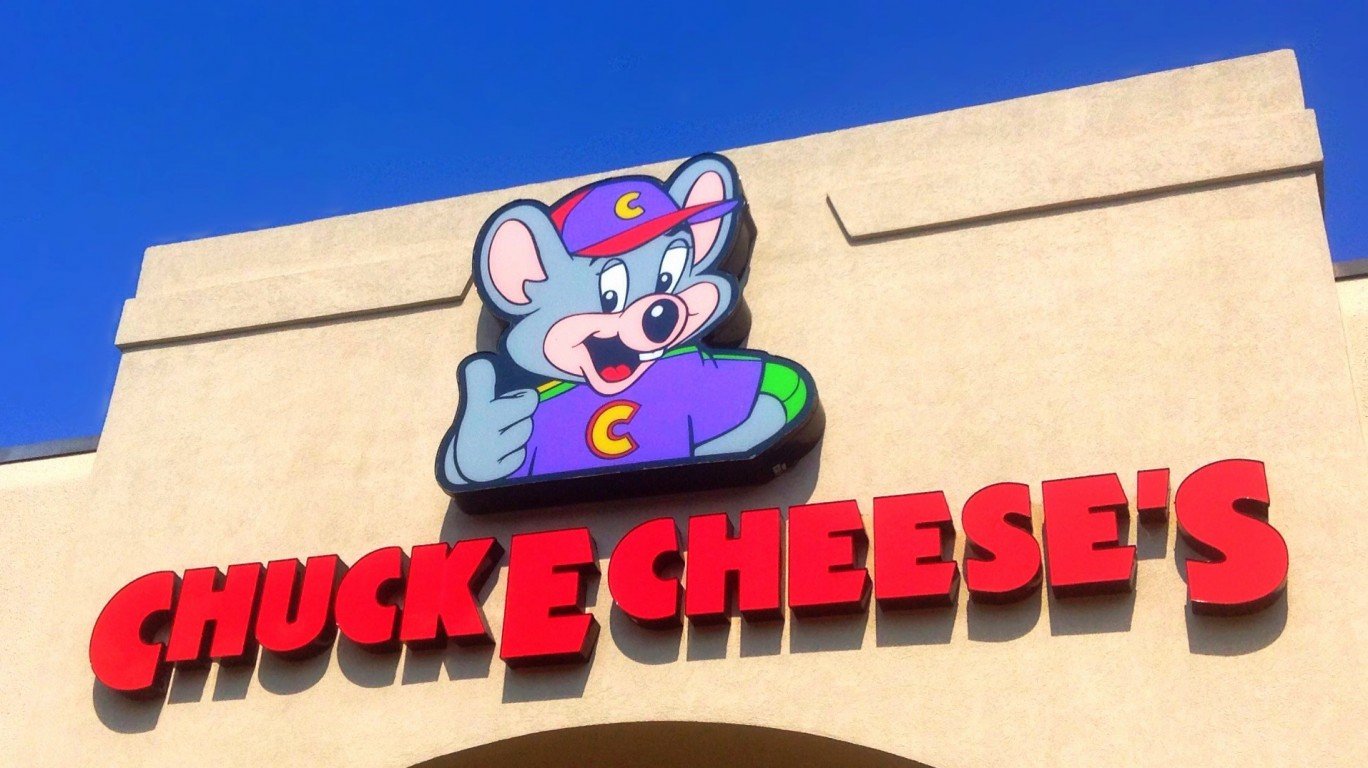 24/7 Wall St.
24/7 Wall St.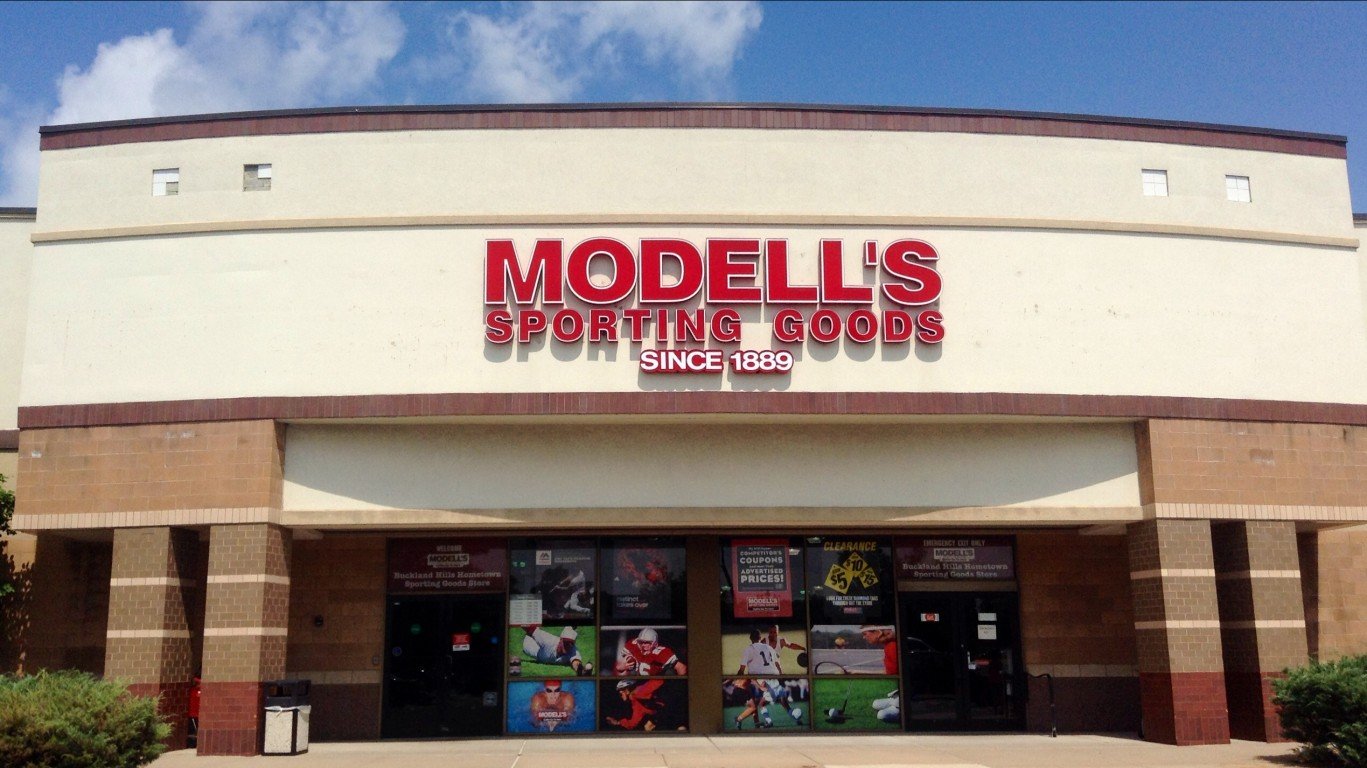
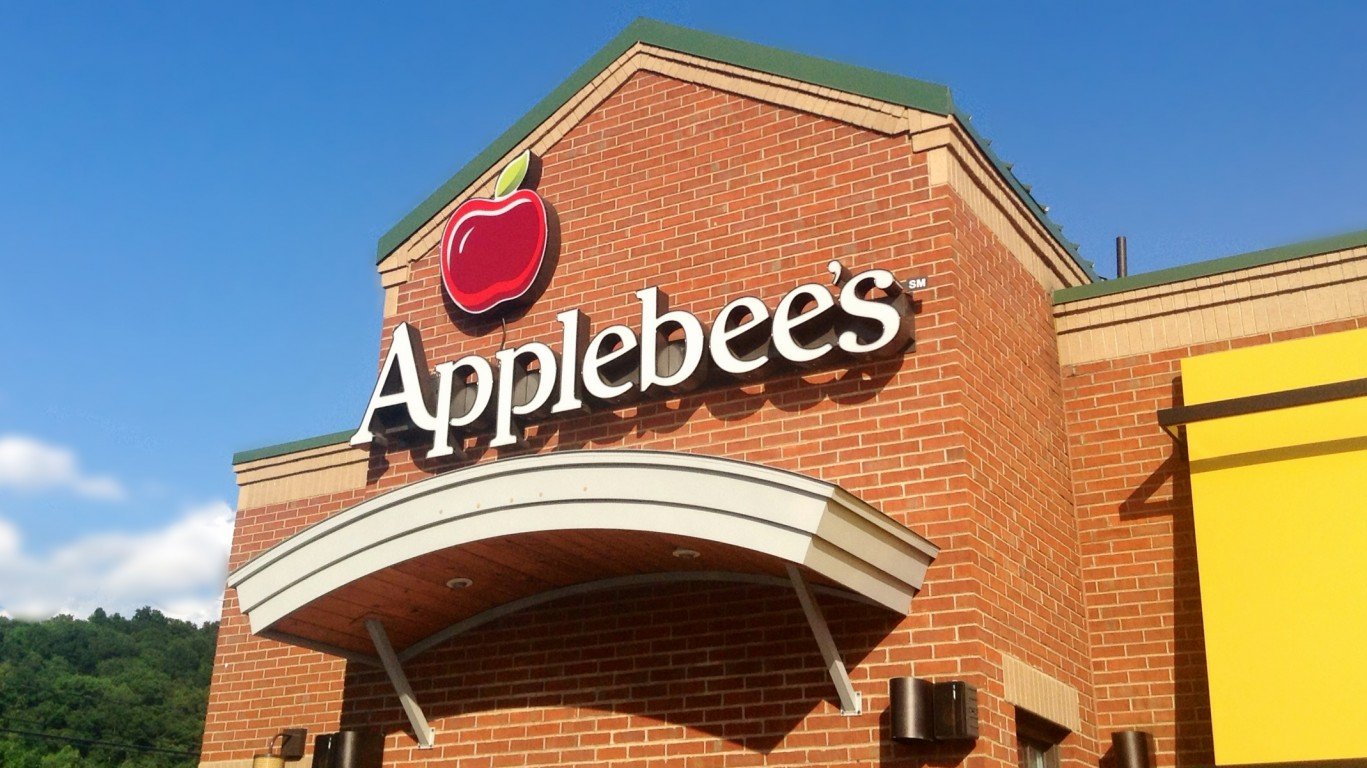
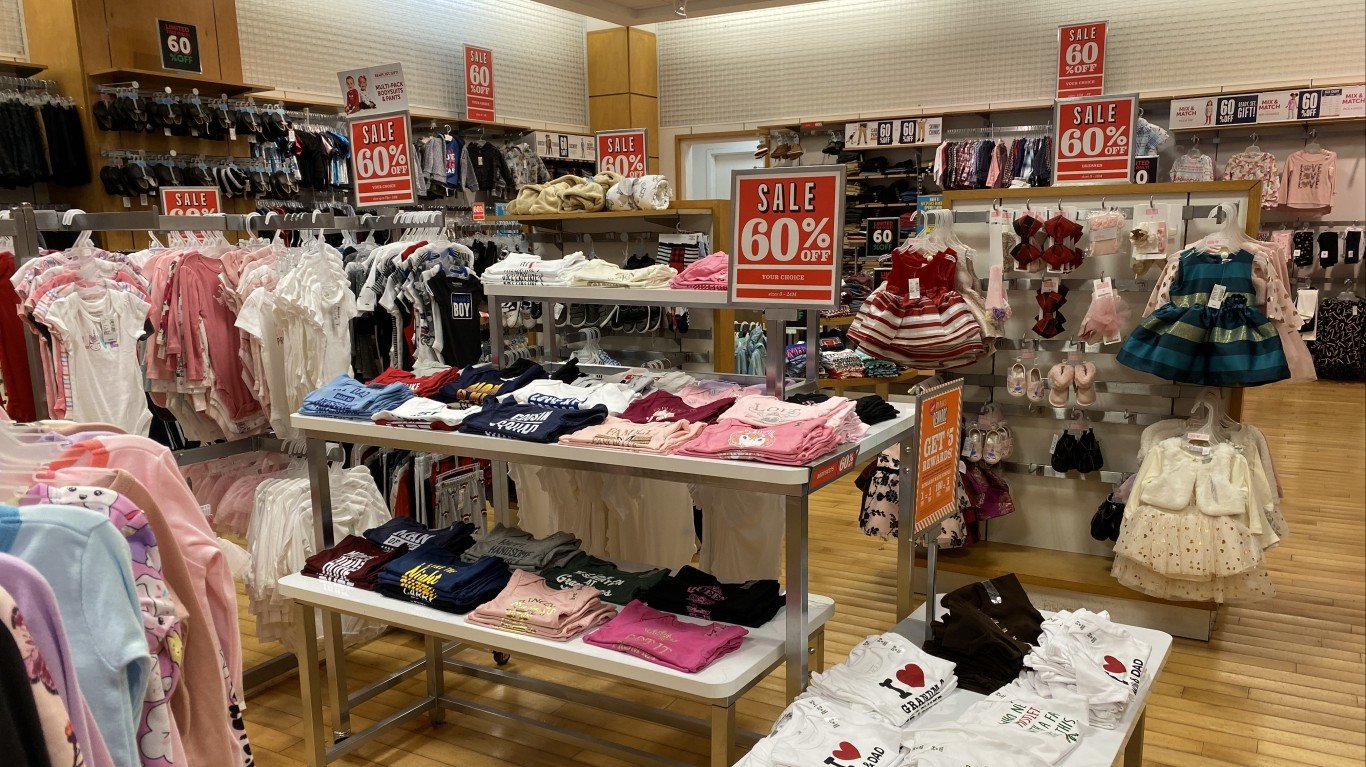

 24/7 Wall St.
24/7 Wall St.
